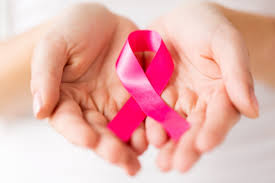
The human body is a complicated system and more so the female body, hence the female system is prone to certain types of conditions which are unique to this gender. One such type of condition can inflict women is ovarian cancer. Cancer that develops in the tissue of the ovaries is termed as ovarian cancer. Let us learn about the symptoms of this specific type of cancer. September is celebrated as ovarian cancer awareness month along with prostate and childhood cancers. 
What Exactly is Ovarian Cancer?
Ovarian cancer is a type of cancer that develops in the ovaries of a female body. Ovaries are a pair of glands that are responsible for reproduction. The ova or the eggs are formed in the ovaries. Quite common amongst women the world over, it is of four subtypes:
- Epithelial ovarian cancer affecting the outer cells of the ovary known as the epithelium. It is the most common type of cancer of the ovaries.
- Germ cell ovarian cancer is not a usual type of cancer it inflicts the cells in the ovary that make the eggs. It usually affects younger women.
- Sex-cord stromal cell ovarian cancer is an uncommon form of ovarian cancer. It affects the cells responsible for releasing female hormones. Age is no criterion for this specific type of ovarian cancer.
- Borderline tumors are a type of epithelial tumours. These are termed as borderline tumors for they are less aggressive.
Symptoms of Ovarian Cancer
The problem associated with ovarian cancer is that most of its symptoms are associated with other health issues. But watch out these symptoms specifically:
- Pain in the abdomen
- Bloating
- Loss of appetite
- Weight gain
- Fatigue
- Pain while indulging in sex
- Vaginal bleeding
It is not being suggested that if you are complaining of one or more of the above symptoms you are suffering from ovarian cancer. What is being suggested is that you get in touch with your physician who conduct further tests if the problem is persistent.
Myths Associated with Ovarian Cancer
Myth 1: The real cause of ovary cancer is actually unknown. Years ago, the belief was that when the ovary stops producing eggs then after some time cancer cells may develop there. However, this theory was proved wrong when doctors could find this cancer even in young women who were yet to reach menopause.
Myth 2: The misconception about ovary cancer is that it happens to old women only. Well that is not true. It can happen to any woman no matter what the age of the person is. This is very important for all women to know.
Associated Risks
Ovarian cancer is also considered dangerous as it may spread to other parts of the body. These cancer cells can invade other organs near the ovary. The ovarian cancer cells can shed and as a result you may see tumours in other parts of the abdomen. Cancer cells can spread through lymphatic system of the body. The cells can get into the blood too.
Examination for Ovarian Cancer
Another important information about ovarian cancer is that there is no routine check for it. The test includes physical check of the pelvic area, ultra sound and x-ray. Sometimes even blood test can prove the presence of cancerous cells in the ovary. The biopsy is a must to determine ovarian cancer. There is definitely treatment for ovarian cancer. However, the survival depends on the age of the woman and the stage at which the cancer is.

Precautions and Care
There are some precautions that you can take to avoid ovary cancer. Take less fertility drugs, don’t use too much of talcum powder in the pelvic area, try to maintain your weight, doing these will ensure that your chances of getting ovary cancer reduces. If your family has a history or ovary cancer then you must be more careful and consult your doctor.
For women below thirty the ovarian cancer is like a cyst that is filled with water. If you are suffering from cysts at an early age then you must take it seriously. Generally women over fifty have a higher chance of getting ovarian cancer. If there is a history in your family of ovary cancer then too you may suffer from the disease.
You can get a physical check or a pelvis test done. Ultrasound technology is also used to check ovarian cancers. Laparoscopy can be used to treat ovarian cancer and cyst. This is done by using a thin tube into the ovary. This can also indicate to which parts of the body the cancer has spread. These tests and treatments will help you to heal faster.
Finally…
Do take care of your health. The first step to treating any disease is to create awareness about it, though we must also advice our readers not to draw conclusions based on information presented on this website and using their own imagination. Take any of the above symptoms as a warning sign and NOT to become overly worried. It could be possible that your symptoms are due to some other problem. So just be aware and cautious but just be carefree too
References:
Information from National Cancer Institute
Center For Disease Control and Prevention










